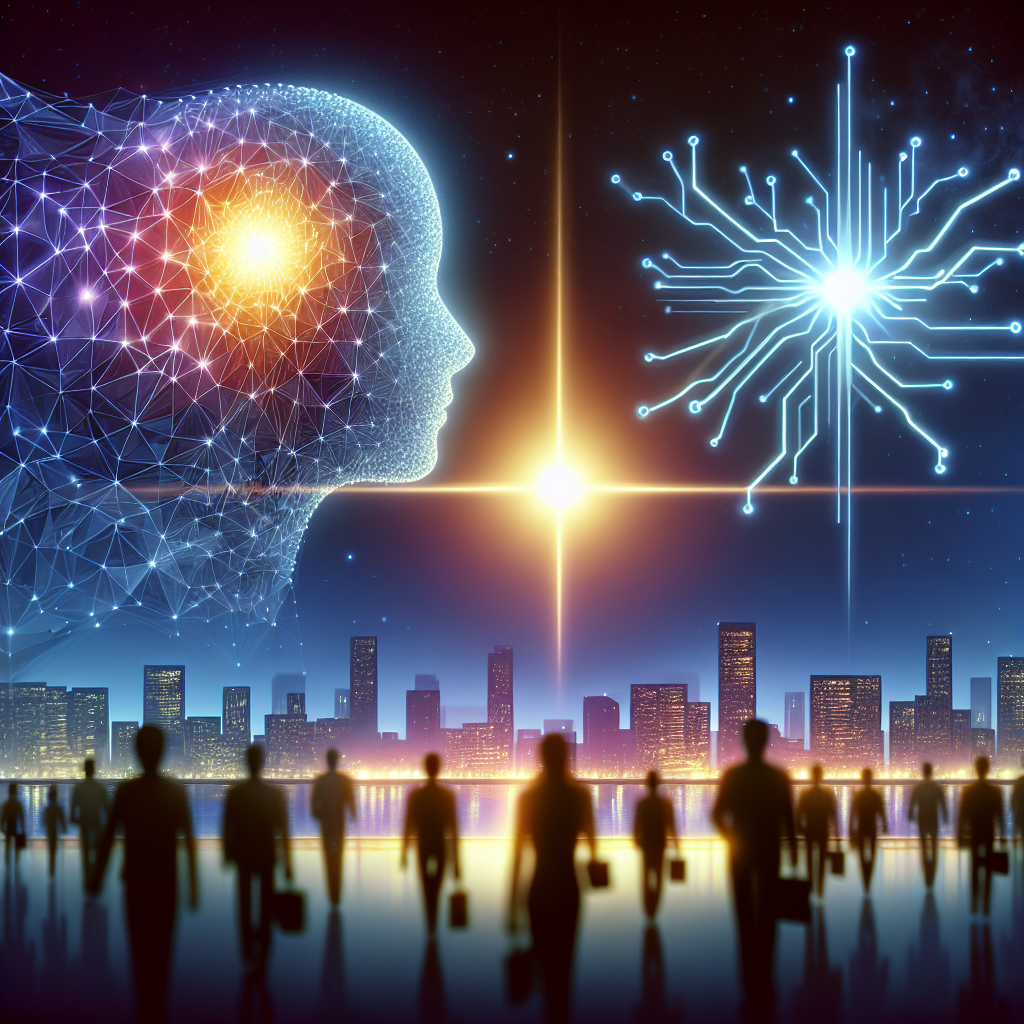Artificial intelligence (AI) has become an integral part of our daily lives, with applications ranging from virtual assistants like Siri and Alexa to personalized recommendations on streaming services like Netflix and Spotify. However, not all AI is created equal. There are two main categories of AI: Narrow AI and Artificial General Intelligence (AGI). Understanding the difference between these two types of AI is crucial in order to grasp the potential impact they may have on society in the future.
Narrow AI, also known as weak AI, is designed to perform a specific task or a narrow range of tasks. This type of AI is what we commonly encounter in our daily lives, such as image recognition software, language translation tools, and recommendation algorithms. Narrow AI is highly specialized and can only perform the tasks it has been programmed for. It lacks the ability to generalize or adapt to new situations outside of its programmed parameters.
On the other hand, Artificial General Intelligence (AGI), also known as strong AI, is a hypothetical form of AI that possesses the ability to understand, learn, and apply knowledge in a way that is indistinguishable from human intelligence. AGI would be capable of performing any intellectual task that a human can do, and potentially even surpass human intelligence in certain areas. The development of AGI is the ultimate goal of AI research, as it has the potential to revolutionize every aspect of society.
The key difference between Narrow AI and AGI lies in their level of intelligence and adaptability. Narrow AI is limited to specific tasks and cannot generalize its knowledge to new situations, while AGI has the ability to learn and apply knowledge across a wide range of tasks. The development of AGI poses both exciting opportunities and potential risks for society.
One of the most significant impacts of AGI on society would be its potential to revolutionize industries and create new economic opportunities. AGI could automate a wide range of tasks currently performed by humans, leading to increased efficiency, productivity, and cost savings for businesses. This could result in the creation of new industries and job opportunities that we cannot even imagine today.
However, the widespread adoption of AGI could also have negative consequences for society. The automation of jobs could lead to widespread unemployment and economic inequality, as certain industries and professions become obsolete. Additionally, the potential for AGI to surpass human intelligence raises ethical concerns about the implications of creating machines that are more intelligent than humans.
Another potential impact of AGI on society is its ability to revolutionize healthcare and medicine. AGI could analyze vast amounts of medical data and develop personalized treatment plans for patients, leading to more effective and efficient healthcare outcomes. AGI could also assist in drug discovery and development, leading to breakthroughs in the treatment of diseases and the development of new therapies.
However, the development of AGI also raises concerns about privacy and security. AGI systems could potentially access and analyze vast amounts of personal data, leading to concerns about data privacy and the potential for misuse of sensitive information. Additionally, the potential for AGI to be weaponized raises concerns about the development of autonomous weapons systems that could pose a threat to global security.
FAQs:
Q: What are some examples of Narrow AI?
A: Some examples of Narrow AI include speech recognition software like Siri and Alexa, image recognition software like Google Photos, and recommendation algorithms like those used by Netflix and Spotify.
Q: How is AGI different from Narrow AI?
A: AGI is a hypothetical form of AI that possesses the ability to understand, learn, and apply knowledge in a way that is indistinguishable from human intelligence. Narrow AI is designed to perform specific tasks and lacks the ability to generalize or adapt to new situations outside of its programmed parameters.
Q: What are some potential benefits of AGI for society?
A: Some potential benefits of AGI for society include increased efficiency, productivity, and cost savings for businesses, breakthroughs in healthcare and medicine, and the creation of new industries and job opportunities.
Q: What are some potential risks of AGI for society?
A: Some potential risks of AGI for society include widespread unemployment and economic inequality, ethical concerns about creating machines that are more intelligent than humans, privacy and security concerns, and the potential for AGI to be weaponized.
In conclusion, the development of AGI has the potential to revolutionize every aspect of society, from industry and healthcare to ethics and security. Understanding the difference between AGI and Narrow AI is crucial in order to grasp the potential impact these technologies may have on society in the future. While AGI offers exciting opportunities for innovation and progress, it also raises important ethical, social, and economic concerns that must be addressed as we move forward in the age of artificial intelligence.

